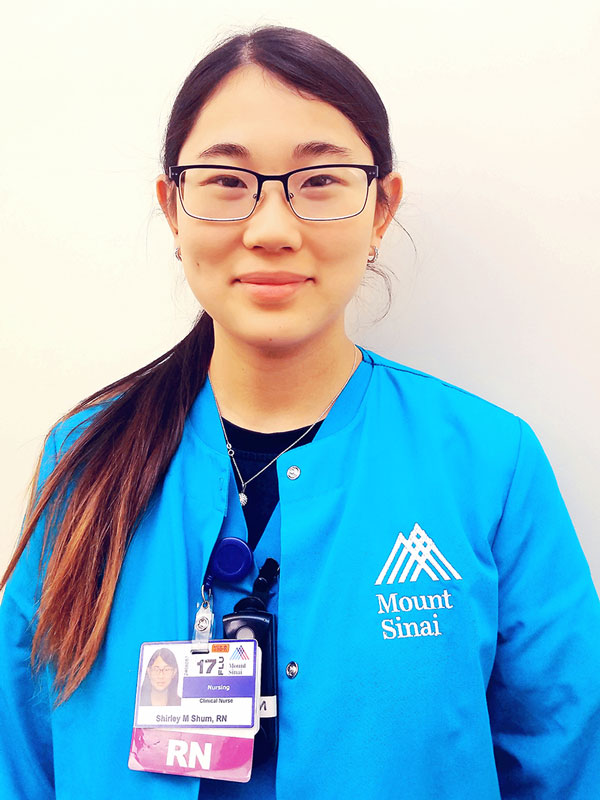
Cold and clammy hands were tightly clasped around mine. Tears began welling up in her eyes. She struggled to mouth the words, “I have cancer.”
Ten minutes ago, she and I were just strangers. As a part-time electrocardiogram transporter, I had just met this middle-aged woman, wheeling her down to the third floor for a computed tomography scan. After a brief introduction and small talk, I noticed a sense of despair in her eyes. I asked her if anything was troubling her. She told me she was just diagnosed with lung cancer with no family nearby to care for her.
I felt helpless. How could I do anything to help her at this moment? Then, I remembered that I was well-known for having warm, radiator-like hands. I extended my arm out and held her hands as tightly as I could. I listened to her story and tacitly empathized with her in those moments. She graciously thanked and thanked me for those little acts of kindness, but I was even more thankful. On that day, I learned to “do small things with great love.”
Becoming an Oncology Nurse
I was so eager to graduate and finally become a full-fledged nurse. All my life, I dreamed of being a nurse. I looked forward to caring for and learning about people and becoming a small part of their stories. I was advised that as a new nurse I should consider a medical/surgical experience as a first step. But I felt like I had a different calling. So, when I had the opportunity to work in an ambulatory oncology setting, I did not hesitate to take the chance.
Walking into our treatment center, I was grateful to find compassionate and dedicated nurses and staff. Everyone greeted me with bright smiles and welcoming hands. However, being the first new graduate nurse on an outpatient unit felt intimidating. I was different. Everyone had prior nursing experience. I came in as a blank slate, ready to be molded by those around me.
The Support of Preceptors and Colleagues
Most of all, I felt really thankful for a wonderful preceptor. She was my support, guiding me in the right direction toward becoming a great nurse. I learned to communicate effectively, to familiarize myself with foreign-sounding medications, and to prioritize care for patients. Most importantly, she taught me how to be a competent nurse—ensuring that the patients were being cared for safely.
As nurses, we are the last check before patients receive any treatment. I was taught to take my time and do things right, rather than rush and do things wrong. All the nurses on the team supported me, answering my never-ending questions. Every day, at least one nurse would ask me if I needed any help. The word gratitude does not adequately express how appreciative I felt.
Like any new graduate nurse, I was both excited and nervous to begin my career. The first few weeks I was most concerned about task-oriented skills such as accessing a central line. Beads of sweat rolled down my forehead each time I was confronted with a patient who needed IV access—which was practically every patient. I remember how I told myself, Relax. My preceptor was at my side, watchfully guiding me. As a new nurse, I was caught up with being task-oriented, but my preceptors would gently remind me to use nursing judgment and take the time to step back and look at the full picture.
In the beginning, I would be in a hurry to have the patient arrive, receive chemotherapy, and leave. I was encouraged to reevaluate: Is the patient coughing? Does he have a serious cold or fever? Is the team aware of this issue? Over time I learned that nursing is not a series of tasks, and I now take the time to reevaluate if the correct actions are taken to provide the best care for each patient. Every step of the way, someone was there to guide me during my orientation process. Most importantly, I was taught to learn from mistakes and to prevent making them again. An error or near miss is a learning opportunity. Even the most experienced nurses can make a mistake.





